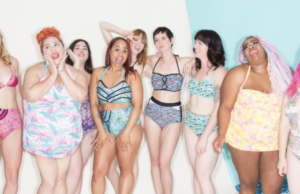Feminism means equality for all
By Saba Aydiner on March 29, 2018
There is a huge misconception that to be a feminist is getting out with a pink hat, yelling and shouting at men with anger, and, furthermore, it is misconstrued that feminism only affects women.
Although many well-known people like Emma Watson, Hillary Clinton, Barack Obama, Oprah Winfrey and the Dalai Lama have talked about feminism and tried to get the message of the unheard ones across, feminism to this date is still considered synonymous with man-hating.
Simone de Beauvoir wrote, “The first time we see a woman take up her pen in defense of her sex” is how feminism started. Involving a wide range of women, first-wave feminism began during the late 19th and early 20th centuries to defend the political rights of women. Back in the day, let alone being politicians, women weren’t even allowed to vote and were considered to be second-class humans. Some faced a variety of abuses such as they were locked in factories, working over-hours under unsafe conditions, breathing chemicals, being sexually abused, and, still, were paid less.
Because of the ownership of men over their wives and children, women didn’t have a say in their own, nor their children’s futures. As a result, women created unions, arranged secret meetings, made plans and organized protests to gain their political rights, but in return, they were beaten and imprisoned. After years of torture, women over 30 who owned houses were granted the right to vote, but that wasn’t enough; women were running out of options to make themselves heard, so one of the many, a real life hero, Emily Wilding Davison, threw herself in front of the kings derby horse and sacrificed her life and earned the right to vote for the rest of her fellow sisters she left behind.
First-wave feminism ended with the allowance of women to have the right to vote all over United States. Although there were iconic feminists like Voltairine de Cleyre and Margaret Sanger who defended the sexual and economic rights of women during first-wave feminism, second-wave feminism is when socio-economic equality also got added to the “must defend” list.
Second-wave feminism refers to the period of activities done in the early ’60s to late ’80s against social and economic discrimination toward women. Betty Friedan criticized in her book, “The Feminine Mystique” (1963), which was considered to be one of the most influential books of the 20th century, that women could only find fulfillment through childrearing and homemaking. Friedan said that women are in a false belief system to find identity and meaning in their lives through their husbands and children.
Second-wave feminism was also the time when the phrase “Women’s Liberation” was mentioned the first time in the United States. Even if second-wave feminism fought for the equality of women, feminist and intellectual African-American Gloria Jean Watkins addressed in her book, “Feminist Theory From Margin to Center” (1984) that the movement didn’t give enough attention to race, class and the issues that divided women.
The third-wave feminism began in the early ’90s as a response to the failures of second-wave feminism.
Feminism is the belief that men and women should have equal rights and opportunities. It is the theory of the political, economic and social equality of the sexes. It is true that feminism focuses on women’s rights more than it does on men’s rights, but that is because women are still suffering from politic, economic and social inequality more than men do.
What people choose to ignore is that feminism stands for every human being who faces discrimination because of their gender. When a man is being sentenced more just because of his gender, feminism should be there. When boys are taught not to express their feelings freely or not to cry so they don’t look less of a man, feminism should be there. When fathers are being valued less by the society as parents, feminism should be there.
It is common to hear people say, “If feminism defends the rights of both sexes, why is it called feminism?” or “Yeah, that’s a good way of selling the word,” when they hear it stands for equality. In situations like this, people who identify as feminists, including me, get aggressive easily and, unfortunately, after a while, this intellectual debate turns into a war zone of people who desperately try to force their thoughts on one another, and it doesn’t take long before the word that was supposed to bring people together, causes separation.
Even when feminism is as basic as the defense of the simplest human rights, the word is still being scandalized, considered to be filthy and feminists are judged to be bitchy, aggressive, isolating, anti-men, loud and nasty women who don’t shave or get married.
Chimamanda Ngozi Adichie calls this the danger of a single story. In her feminism speech addressing the UN, Emma Watson says, “It is time we all perceive gender on a spectrum not as two opposing sets of ideals. Because the reality is that if we do nothing, it will take 75 years before women can expect to be paid the same as men for the same work. 15.5 million girls will be married in the next 16 years as children, and at current rates, it won’t be until 2086 before all rural African girls will be able to receive a secondary education.”
If we stop defining each other by what we are not and start defining ourselves by what we are, we can all be freer, and this is about freedom.
Search
News

Rocket League team advances to Nationals
Rusty Sheehan | May 31, 2024A little while ago, the beginning of the esports season was covered by the Tiger Hi-Line, including the rocket league team who, at the time, was in the process...
-
 Lana Greenleaf | May 29, 2024
Lana Greenleaf | May 29, 2024
HCC technology camps can expand young learners’ coding knowledge coding, more
-
 Lana Greenleaf | May 21, 2024
Lana Greenleaf | May 21, 2024
-
 Hanna Lane | May 21, 2024
Hanna Lane | May 21, 2024
-
 Lana Greenleaf | May 15, 2024
Lana Greenleaf | May 15, 2024
Incoming seventh graders can prepare for junior high with Boost
-
About
The Tiger Hi-Line Online is an award-winning creation produced by the journalism students at Cedar Falls High School. We produce written, photographic and video stories of the latest news around campus as well as teen-centered topics from around the world. The content is created entirely by students, primarily from the newspaper, broadcast and yearbook courses at Cedar Falls High School. Please email any story ideas to hilinestaff@gmail.com.Tags
2018-2019 2019-2020 alayna yates AOTW art artist of the week athlete of the week basketball books Cedar Falls High School CFHS choir Christmas college COVID donald trump Eden Davis entertainment Erin McRae feature Football games halloween home homecoming Iowa Jaden Merrick jared hylton movies music news opinion our view politics prom robotics Sabine Martin Sal Engle Skylar Promer Sophia Schillinger sports state Swimming video games volleyball




You must be logged in to post a comment Login